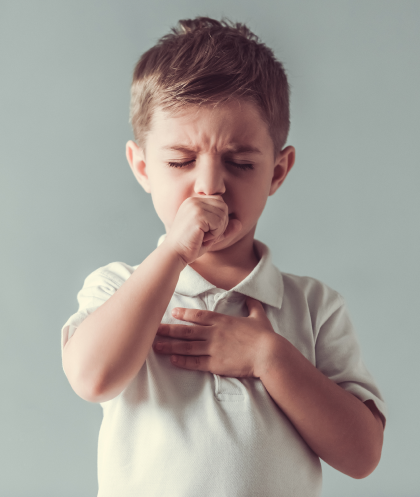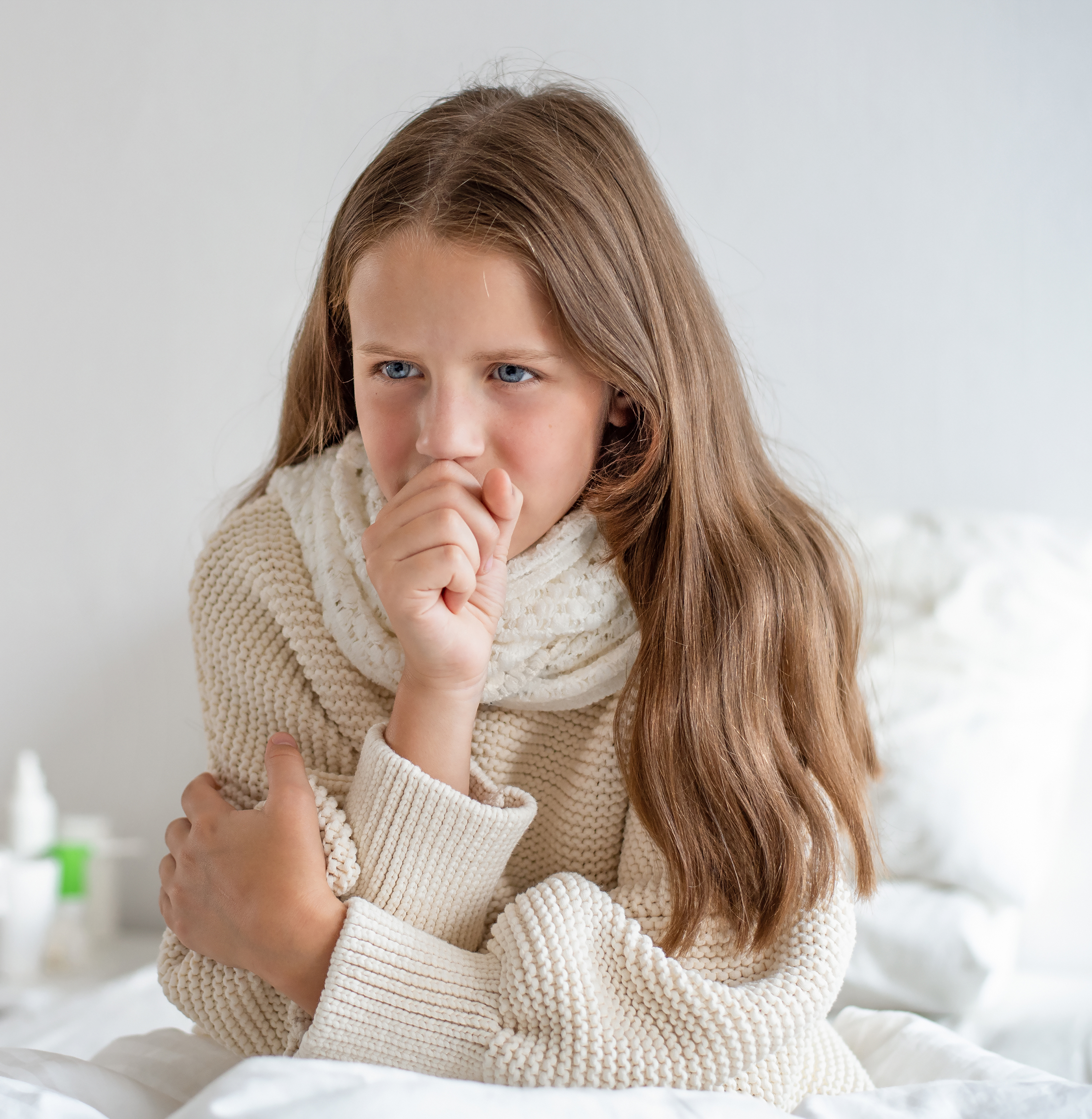
77 Wimpole Street,
London, W1G 9RU


Respiratory Conditions
Clearly extremely common in children. The entirely healthy, normal adult and child coughs 11 times a day so coughing is a quantitative science and not a yes/no subject.
Cough is most unusual in babies under 3 months and very rare in a pre-term baby so more than a bit of a cough means something is amiss for example bronchiolitis, gastroesophageal reflux, aspiration of feeds, pneumonia, perhaps a congenital abnormality and rarely conditions such as cystic fibrosis which although screened for on the heel prick test at 50 days and is very good at it, is not a cast iron 100% guarantee of excluding it.
Gastroesphageal reflux is very common in babies and most smile and chuckle as they do it but for a few it leads to a lot of distress crying, fussy feeding, pulling away, arching and turning their heads (Sandifer's manoeuvre) and cough because the airway and the esophagus (gullet) are evolutionarily from the same tissue. Occasionally, but only occasionally gastroesophageal reflux is due to milk allergy.

Over the last 15 years it has become clear that a number of otherwise neurologically and developmentally completely normal children have difficulties with co-ordinating breathing and swallowing leading to bits of milk going through the voice box (larynx) into the lungs.
This is very irritating to the lungs. Paradoxically many babies with this problem don't cough when it occurs but cough generally, often wet in nature starting often at around a month of age.
This is a maturational problem which resolves in most by age 4 years and in the interim is managed by speech and language assessment and thickened liquid feeds. Clearly those babies with developmental and neurological issues are also at greatly increased risk of aspirating feeds as well.
RSV (respiratory syncytial virus) is a very common cause of bronchiolitis in babies leading to cough and wheezing and it is thought 10% of all babies get it each year between October and March and there is no specific drug treatment apart from supportive care.
In addition, one only keeps immunity to RSV infection for about 6 months so in theory one can have it every year though as one gets older it shows itself more as an above average cold and is probably the origin of ‘man flu’!
Cough after 6 months is very common. Viral illnesses are the most common reason of cough, and a degree especially at night for a week should be regarded as normal. Severe or prolonged (2-3 weeks) episodes of coughing is not normal and may indicate viral related symptoms or an additional issues. It occurs most commonly between the ages of 9 months and 4 years. Children are completely well get a cold cough for 2 or more weeks and then improve just in time to get another cold and the cycle repeats itself
In older children over 4 years of age mild asthma is a very common cause of a chronic cough especially with exercise, viral illnesses or emotion.

The whooping cough (pertussis) vaccination given to babies whilst very effective and essential for that age group does not have an infinite life span and so whooping cough in previously vaccinated children over age 6 years is not rare. Following a trivial cold, coughing in bouts without an obvious precipitant e.g. when watching TV occurs increasing in frequency and violence over a 3-4 week period to reach a plateau and then it gradually declines over a further 6 week period making the typical duration about 3 months - hence the saying ‘100 day cough’. Between bouts the child is completely symptom free. If by chance certain antibiotics are given very early on then the duration can be shortened although it is reckoned that once the cough has started, antibiotic treatment is too late so that is almost always the situation. Whilst undoubtedly upsetting for the child and all concerned, at that age, whooping cough in a previously healthy child is very rarely dangerous.
I see about 10 children a year who present with a honking, barking, very loud cough of usually several months duration for which many treatments have been tried and all of them fail. Typically the child is more than 8 years old. Despite this the child does not appear ill and characteristically it NEVER occurs when asleep. This is a classical psychogenic cough or habit tic brought on sub-consciously (so it is NOT deliberate) by stress or anxiety most usually involving some issue at school (bullying, difficulty keeping up with work, peer group pressure etc) or at home (parental arguing, divorce, domestic violence as examples) or sometimes attending elite sports academies and struggling. Treatment is clearly directed at finding the underlying cause and reassuring all that the lungs are not damaged.
Please fill the form below
Suzanne Harvey
secretary
Resources
